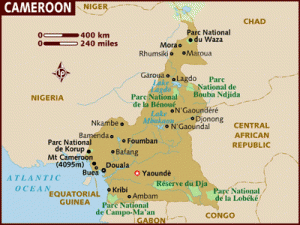Case Preview: HT (Cameroon) v Secretary of State for the Home Department
08 Saturday May 2010
Nick Armstrong, Matrix Case Previews
Share it
 In this appeal the Supreme Court will be considering a relatively narrow but important and sensitive aspect of asylum law. The issue concerns the extent to which those who seek asylum will, if returned to their countries of origin, conceal, or at least be discrete about, characteristics of themselves which give rise to the fear of persecution. Additionally, if they will conceal, at what cost to themselves? This is an appeal from the decisions of the Court of Appeal ([2009] EWCA Civ 172). The Court’s case details are here.
In this appeal the Supreme Court will be considering a relatively narrow but important and sensitive aspect of asylum law. The issue concerns the extent to which those who seek asylum will, if returned to their countries of origin, conceal, or at least be discrete about, characteristics of themselves which give rise to the fear of persecution. Additionally, if they will conceal, at what cost to themselves? This is an appeal from the decisions of the Court of Appeal ([2009] EWCA Civ 172). The Court’s case details are here.
The problem can arise in asylum cases in a number of ways. In another case, Hysi v SSHD [2005] EWCA Civ 711, the question related to the concealment of mixed race ethnicity by a 15 year old Kosovan. In other cases, the question may be whether someone will lie or conceal material about themselves when questioned by immigration officers or police on return to the country of origin.
The questions for the Court in these two cases concern the implications of gay people (both appellants are gay men) concealing their sexuality and, in particular, matters related to or informed by that sexuality. For example, will they refrain from demonstrating their affection in a public place? If they do, is that something that can reasonably be tolerated? Is it still persecutory when the reason for that concealment is a well-founded fear of persecution?
A specific question for the Court will be the extent to which, in assessing what can or cannot reasonably be tolerated, the standard is universal or place-specific. Is suppression easier to tolerate in Iran than in the UK? Is a Tribunal assessing such matters entitled to have regard to the beliefs held in Iran when determining what is or is not capable of being tolerated? The court will have to consider whether it should follow the decision of the majority of the High Court of Australia in S395/2002 v Minister for Immigration and Multicultural Affairs ([2003] HCA 71) in deciding what an applicant for asylum from a particular state can be reasonably expected to tolerate in that state
These are important and difficult questions. Both the United Nations High Commission for Refugees and the Equality and Human Rights Commission have been granted permission to intervene. The hearing will take place on 10 – 12 May before Lords Hope, Rodger, Walker and Collins and Sir John Dyson.



2 comments